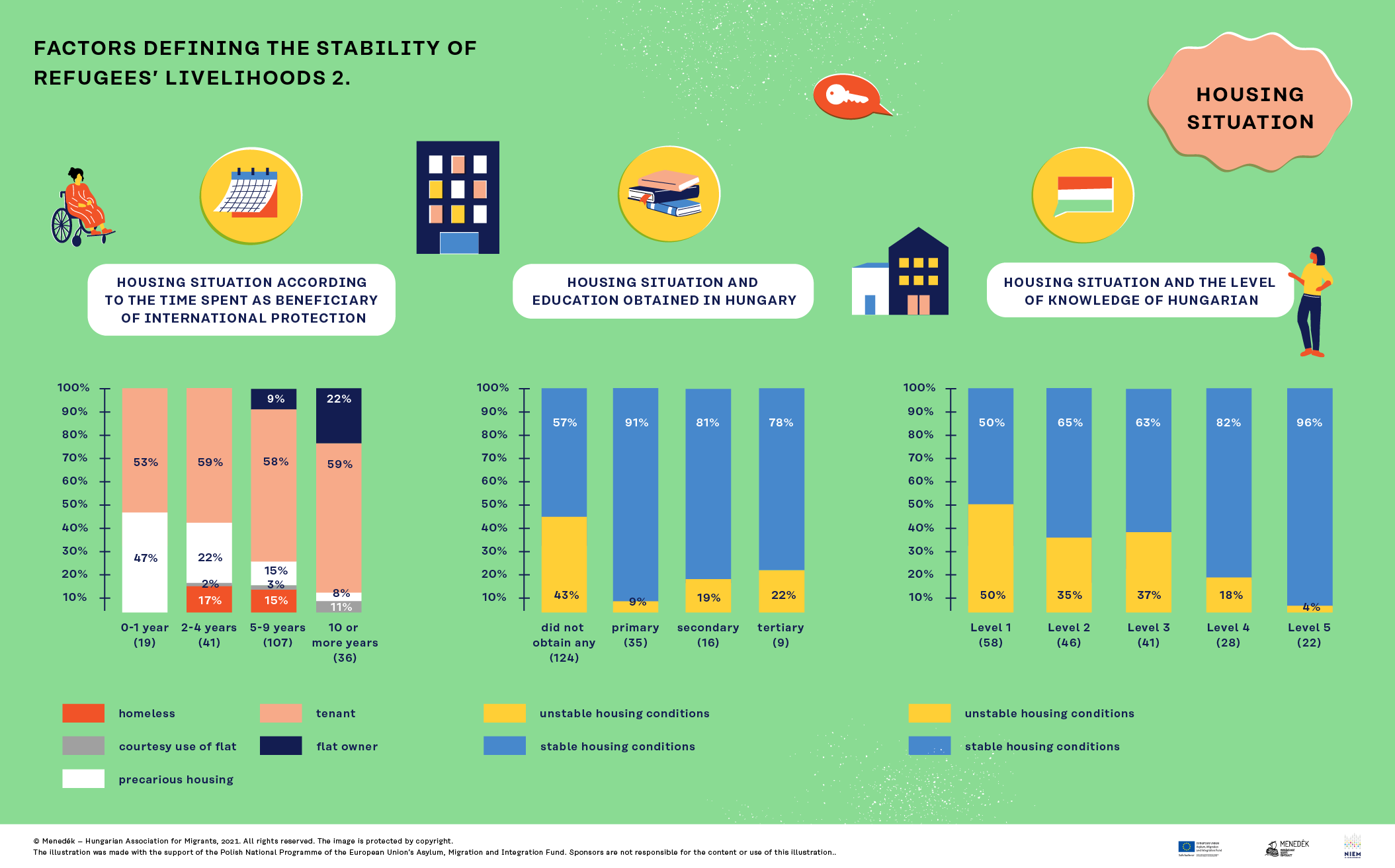
As there are no comprehensive official data on the social and economic situation of refugees living in Hungary, Menedék Association examined the data of its own clientele. This total population is approx. 7%. It can be assumed that those seeking help from Menedék are in a more vulnerable position than average, so the sample is not representative.
Based on the data, an important trend is that the time spent in Hungary increases the Hungarian language skills of refugees and the level of their education, which has a positive effect on their housing situation. Even a basic education in Hungary and a knowledge of the Hungarian language greatly contribute to the strengthening of their livelihood security.
As refugees do not receive targeted housing support, the risk of homelessness is high in the first years and many live among vulnerable housing conditions. The majority of refugees live in rented flats, although more and more people are getting access to their own property in proportion to the time they spend here, and the proportion of people living among vulnerable conditions is declining.
